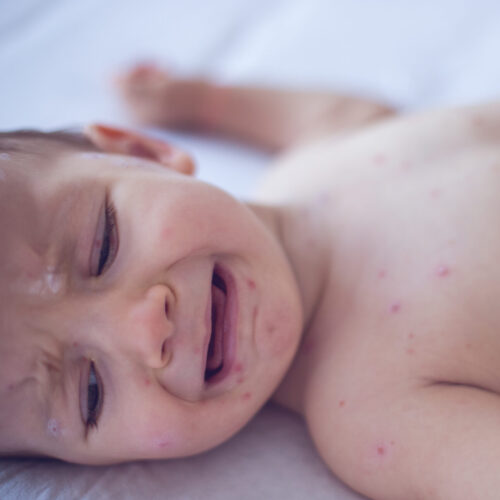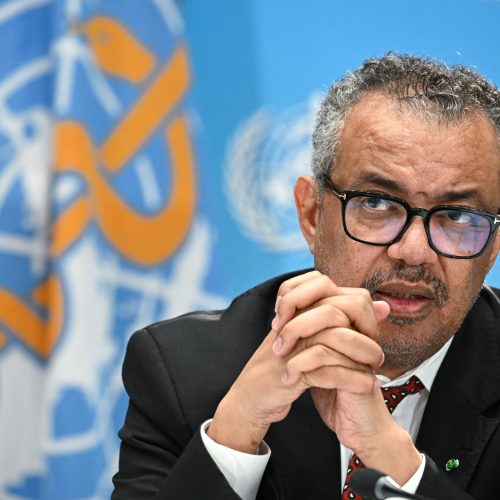Premature Newborn Dies in Ontario After Catching Measles From Unvaccinated Mother
Thousands of people, mostly children, in the U.S., Canada, and Mexico have contracted the vaccine-preventable disease this year.


With measles declared eliminated from the US in 2000 and national herd immunity strong, health experts have recommended that American children get two doses of the Measles, Mumps, and Rubella (MMR) vaccine—the first between the ages of 12 and 15 months and the second between the ages of 4 and 6 years, before they start school.
Before 12 months, vulnerable infants in the US have been protected in part by maternal antibodies early in infancy as well as the immunity of the people surrounding them. But if they travel to a place where population immunity is unreliable, experts recommend that infants ages 6 to 11 months get an early dose—then follow it up with the standard two doses at the standard times, bringing the total to three doses.
The reason they would need three—and the reason experts typically recommend waiting until 12 months—is because the maternal antibodies infants carry can interfere with the vaccine response, preventing the immune system from mounting long-lasting protection. Still, the early dose provides boosted protection in that 6-to-11-month interval.


© South_agency

The cadre of elite disease detectives at the Centers for Disease Control and Prevention is expected to be left in ruin today as the Trump administration continues to slash the federal workforce.
Many members of the CDC's Epidemic Intelligence Service, EIS—a globally revered public health training program—were informed earlier Friday that they were about to be fired, according to reporting from Stat News. Multiple sources told CBS News that half of EIS officers are among the ongoing cuts.
The Trump administration is ousting thousands of probationary federal workers in a wide-scale effort to dramatically slim agencies.


© Bloomberg | Getty Images


The World Health Organization has begun cost-cutting measures in preparation for a US withdrawal next year, according to reporting by Reuters.
On his first day in office, President Trump signed an executive order to withdraw the US from the United Nation's health agency. The country was a founding member of the WHO in 1948 and has since been a key member of the organization, which has 193 other member states. The executive order cited Trump's long-standing complaints about the agency's handling of the COVID-19 pandemic, dues payments, and alleged protection of China as the reasons for the withdrawal.
In a statement on Tuesday, the WHO said it "regrets" the announcement and hopes the US will reconsider.


© Getty | FABRICE COFFRINI

